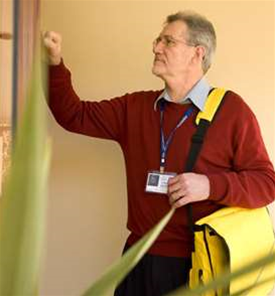Global software firm ThoughtWorks has lent its voice to the campaign against the Australian statistics body's move to retain names and addresses collected from this year's Census, calling on the ABS to reverse its decision immediately.

The bureau was this week forced to publicly defend its new policy in the face of a developing groundswell of opposition in the lead up to the August 9 national survey.
The new policy was quietly unveiled just before Christmas last year. It will see the length of time the ABS stores names and addresses extended from 18 months to four years, and the anonymised data linked with other government datasets in order to produce better statistics.
But growing community awareness of the policy as the national headcount approaches has sparked a backlash, with many promising to boycott the Census over fears about the privacy and security of their personal data.
Prime Minister Malcolm Turnbull, Treasurer Scott Morrison, and chief statistician David Kalisch all separately fronted the media yesterday in an attempt to soothe some of the community's concerns.
But their words appear to have done little to allay public fears, with software consultancy ThoughtWorks yesterday joining several independent and opposition MPs, privacy advocates, and even former chief statistician Bill McLennan to condemn the new policy.
ThoughtWorks software delivery consultant Tom Sulston wrote that while the firm was a '"huge fan" of the Census, the 2016 survey threatened the viability of the otherwise "excellent policy tool".
"By choosing to retain the names and addresses of about 24 million people in 10 million households alongside their sensitive demographic data, the ABS is taking a risk with the privacy rights of all Australian residents," he wrote in an open letter to the ABS.
"In light of the security threats observed in recent years, we are afraid that no matter how strong the security capability of the ABS, the risk is real and should this data leak the impact would be immense."
He argued that the ABS' decision to retain more personal information "needlessly puts the private lives of Australian residents at risk".
"Not only is securing data difficult, when it is leaked it is impossible to retrieve. Consider that the NSA, one of the world’s most well-funded and capable security organisations, was unable to prevent the leaking of thousands of documents about its operations," Sulston wrote.
"It is only by reducing the amount of data that we hold that we can reduce the impact when it leaks."
He noted that a growing civil disobedience campaign - whereby concerned citizens fill out the form with inaccurate information - would have "unintended repercussions" for the quality and integrity of census data for years to come.
ThoughtWorks urged the ABS to ditch its names and addresses policy before next Monday, and allow citizens to submit Census responses without including their personally-identifiable information. It also pushed the agency to commit to destroying any collected names and addresses within six months.
The software firm joins several parliamentarians who have already taken issue with the change, including independent Senator Nick Xenophon and Greens MP Scott Ludlam, who have called for the Census to be delayed until the concerns are dealt with.
Former ABS chief statistician Bill McLennan has labelled the ABS' new policy - which was rejected in 2005 as too dangerous to privacy and security - as the “most significant invasion of privacy” ever perpetrated by the ABS.
Privacy lobby group Electronic Frontiers Australia called it a “serious breach of trust”, and NSW Privacy Commissioner Elizabeth Coombs said she was “concerned” about the risks.




.png&h=140&w=231&c=1&s=0)
_(20).jpg&h=140&w=231&c=1&s=0)





 iTnews Executive Retreat - Security Leaders Edition
iTnews Executive Retreat - Security Leaders Edition
 iTnews Cloud Covered Breakfast Summit
iTnews Cloud Covered Breakfast Summit
 The 2026 iAwards
The 2026 iAwards












_(1).jpg&h=140&w=231&c=1&s=0)



